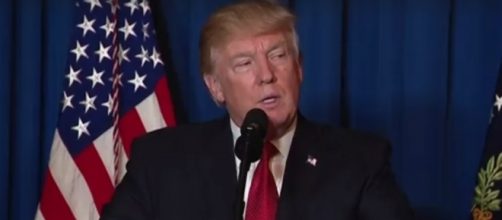The so called #UniteTheRight rally in Charlottesville has grabbed headlines. The scars of racist periods of the past still haunt the United States, racism itself still alive and well today, and race remains a controversial issue. With this in mind, it is no surprise that a white supremacist demonstration would be divisive and frightening.
Violence in Charlottesville
But what made this rally particularly noteworthy was the violence that broke out. Three people were killed, three suspects were arrested, and as police broke up the rally a car plowed into a crowd killing a woman walking across the street.
For those witnessing these events, it shows how dangerous racial tensions can be, how quickly they can lead to violence. Some fear that if nothing changes this may only be the beginning of what becomes a violent and dystopian future for the United States. Luckily, many who have observed these events have spoken out to try to calm a volatile situation.
Prominent figures speak out
In Response to the tragic events that took place, as well as the hateful message demonstrators were spreading, several prominent figures, including LeBron James, and the Governor of Virginia have spoken out against bigotry and have called on the American people to unite against it. Former President Barack Obama expressed the importance of tolerance and mutual respect, tweeting "No one is born hating another person because of the color of his skin or his background or his religion".
Of course, President Obama is not known for tweeting. But someone who is, the current president Donald Trump, was notably absent from the discussion, at least initially. While the White House eventually released statements, many felt that the response was underwhelming and that President Trump didn’t reject racism strongly enough.
President Trump blamed for rise in racial tensions
For many of President Trump’s political opponents, current events confirm the fears that they have had of a Trump presidency since he first ran. During his divisive campaign, he blamed minorities for many of America’s problems and seems to have inspired and emboldened white supremacist groups. Charlottesville’s Mayor Michael Signer said that he placed blame for these events “right at the doorstep of the Whitehouse” due to the prejudice rhetoric and policies that the president has become known for.
When questioned about the statement on CNN, Mayor Signer stated bluntly “Look at the campaign he ran”.
While Trump’s most die-hard supporters have been reluctant to blame him, the message spread by white supremacists in Charlottesville seemed to back up accusations that Trump is at least partially responsible for current hostilities. Many white supremacist demonstrators used the slogan “Heil Trump,” and former KKK imperial wizard David Duke claimed they were fulfilling Trump’s 2016 campaign promises. Trump’s reluctance to disavow these groups in the past has already caused concerns about his motives and the movement his campaign seems to have started is looking more and more threatening.
The radical right and domestic terrorism, national security meets discussions about race
While it is true that partisan politics and political polarization certainly have a role in this, with many liberal Democrats seeing recent events as an opportunity to delegitimize the president, accusations of Trump having racist motives are based on cold hard security realities about the nature of white supremacist organizations and the radical right movement as a whole. National security advisor H.R. McMaster called the attack where a car plowed into a crowd an act of domestic terrorism, which considering this term’s definition it almost certainly is. An FBI probe is even slated to look into the violence.
Yet President Trump, who has been quick to cry terrorism whenever an attack was perpetrated by “radical Islamic terror” organizations in the middle east, has not been so eager to call the attack in Charlottesville terrorism, despite the fact that it was very similar to several terrorist incidents that have occurred in the past. White supremacists have proven themselves as much of a threat as ISIS or Al Qaeda, but Trump’s prejudices seem to be clouding his vision and distorting his view of the terror threat.
America’s history with race continues to cast a shadow over society, and this is the latest example
The strong condemnation that white supremacists have received demonstrates the resolve of the American people to protect both freedom and national security from the threats posed by violent intolerance.
But the progress that has been made can be erased if the right sequence of events unfolds. The implications of the rise in white supremacist activities are dangerous, and without leadership, unity, and mutual respect, it is easy for Americans to be divided and conquered by fear. US history is stained with the atrocities of slavery, segregation, and other policies based on racism and bigotry. The struggle continues today. Things may be better than they once were, but the fight for racial equality is not over. If it was, this would not be happening.


